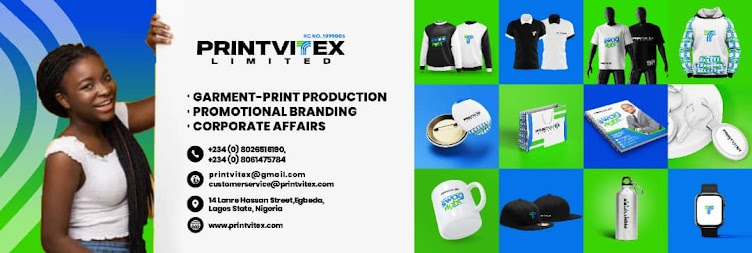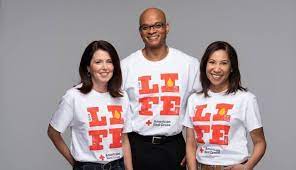- Limited Budgets: Nonprofit organizations typically operate with limited financial resources, making it challenging to execute large-scale marketing campaigns. Promotional products offer a cost-effective solution. With strategic planning, nonprofits can leverage the power of promotional products to maximize their reach and generate long-term impact.
- Donor Engagement and Retention: Building and maintaining strong relationships with donors is crucial for nonprofit sustainability. Promotional products serve as tangible tokens of appreciation, strengthening the emotional connection between donors and the organization. Branded merchandise, such as thank-you cards, customized pens, or donor recognition plaques, can enhance the donor experience and increase the likelihood of continued support.
- Raising Awareness: Creating awareness about a nonprofit's mission and impact is vital to garnering support. Promotional products act as mobile billboards, spreading the organization's message far and wide. Wearable items like t-shirts, hats, or bracelets allow supporters to become walking ambassadors for the cause. Additionally, distributing awareness-raising products at events, conferences, or through strategic partnerships can amplify the nonprofit's reach and attract new supporters.
- Differentiation and Branding: Nonprofits often find themselves competing for attention in a saturated philanthropic landscape. Promotional products enable organizations to stand out by creating a distinct brand identity. For instance, unique and customized items like eco-friendly tote bags, water bottles, or sustainable notebooks not only convey the nonprofit's message but also demonstrate their commitment to social and environmental responsibility. This differentiation can leave a lasting impression on potential donors and supporters.
- Fundraising Initiatives: Effective fundraising is the lifeblood of nonprofit organizations. Promotional products provide innovative opportunities for fundraising initiatives. For example, hosting a charity auction or selling merchandise featuring the nonprofit's logo and mission can generate both funds and awareness. Additionally, nonprofits can collaborate with local businesses to create co-branded promotional products, fostering mutually beneficial relationships and expanding their fundraising efforts.
- Partner Engagement: Building strategic partnerships with businesses and corporations is crucial for nonprofit success. Promotional products offer an avenue for collaboration by featuring both the nonprofit's branding and the partner's logo. This joint branding not only raises awareness but also demonstrates shared values and commitment to the cause. Nonprofits can explore partnerships that involve co-branded promotional products, joint events, or cause-related marketing campaigns.
Of utmost importance is leaving this blog post with the knowledge that strategic planning plays a vital role in ensuring that nonprofits effectively utilize promotional products. Here are some key steps that nonprofits can take to make the most of their investment in promotional products:
- Define Objectives: Start by clearly defining your goals and objectives for using promotional products. Are you aiming to raise funds, increase awareness, engage donors, or all of the above? Understanding your objectives will help you select the right products and design strategies that align with your desired outcomes.
- Identify Target Audience: Determine the specific audience you want to reach with your promotional products. Are you targeting existing donors, potential donors, volunteers, or the general public? Tailor your product selection and messaging to resonate with your intended audience, ensuring that the products will have a meaningful impact.
- Budget Allocation: Set a realistic budget for promotional products within your overall fundraising and marketing budget. Consider factors such as quantity, customization, and distribution costs. Prioritize products that align with your objectives and have the potential for long-term visibility.
- Product Selection: Choose promotional products that are not only cost-effective but also aligned with your cause and audience preferences. Consider practical items that people can use regularly, such as pens, notepads, tote bags, or reusable water bottles. Eco-friendly products are also a great choice, showcasing your commitment to sustainability.
- Customization and Branding: Maximize the impact of promotional products by customizing them with your non-profit’s logo, tagline, and messaging. Ensure that your branding is consistent and reinforces your mission. This will create a cohesive and recognizable identity that helps increase brand awareness and recognition.
- Distribution Strategy: Plan how and where you will distribute your promotional products to reach your target audience effectively. This could involve mailing them to donors, handing them out at events or conferences, partnering with local businesses for distribution, or utilizing online platforms for wider reach. The distribution strategy should align with your objectives and budget.
- Evaluation and Tracking: Establish metrics and Key Performance Indicators (KPIs) to measure the effectiveness of your promotional product campaigns. Track metrics such as increased website traffic, social media engagement, donor response rate, or funds raised as a result of the promotional products. This data will help you assess the impact and make data-driven decisions for future campaigns.
- Cultivate Relationships: Leverage the power of promotional products to cultivate and strengthen relationships with donors, volunteers, and other stakeholders. Consider personalized thank-you notes, exclusive merchandise for loyal supporters, or donor recognition items to show appreciation and build loyalty.
It's essential to continuously evaluate and refine your strategies based on data and feedback to ensure ongoing success in promoting your cause.
Let's now look at examples of promotional products that have influenced successful campaigns of well-known non-profit’s in driving engagement, raising funds, and increasing awareness:
- Customized T-shirts: Customized t-shirts with the non-profit's logo, slogan, or a powerful message are a popular choice. They can be sold as merchandise or given as a thank-you gift to donors, volunteers, or event participants. T-shirts create a sense of belonging and can turn supporters into walking billboards, spreading awareness wherever they go.
Example: The American Red Cross often utilizes customized t-shirts for their blood drives and disaster response efforts. By encouraging donors to wear the shirts, they create a sense of community and raise awareness about their life-saving mission.
- Silicone Wristbands: Silicone wristbands, often known as awareness bracelets, have become a symbol of support for various causes. They are affordable, customizable, and can be worn by supporters as a visual representation of their commitment. Non-profits can sell these wristbands, distribute them at events, or use them as a token of appreciation for donations.
Example: The Livestrong Foundation popularized the use of silicone wristbands to raise awareness and funds for cancer research. Their yellow wristbands became an iconic symbol of support and unity for cancer survivors and their loved ones.
- Branded Tote Bags: Branded tote bags offer both functionality and visibility. They are eco-friendly alternatives to plastic bags and can be used by supporters for shopping, carrying belongings, or attending events. Tote bags with the non-profit's logo and message serve as walking advertisements, increasing brand visibility and spreading awareness.
Example: The World Wildlife Fund (WWF) has successfully used branded tote bags to promote their mission of conservation and environmental protection. By offering these bags as a gift for donations or at events, they encourage sustainable practices and raise awareness about endangered species.
- Custom Pins and Badges: Custom pins and badges are highly collectible and can be used as a form of recognition for supporters. They can be worn on clothing, bags, or displayed on a pinboard. These small yet impactful items help create a sense of pride and affiliation with the non-profit's cause.
Example: The Make-A-Wish Foundation, which grants wishes to children with critical illnesses, uses custom pins and badges to recognize volunteers, donors, and wish recipients. These pins symbolize the power of granting wishes and act as conversation starters, spreading awareness about the foundation's work.
- Charity Calendars: Charity calendars featuring inspiring images or stories related to the non-profit's cause can be a powerful promotional tool. They can be sold to supporters or distributed as gifts to donors, providing them with a year-long reminder of the organization's impact.
Example: Pencils of Promise, an organization focused on improving education in developing countries, has successfully used charity calendars to showcase the impact of their work. Each month features a compelling story of a student whose life has been transformed by their programs, reinforcing their mission and inspiring continued support.
Bottomline:
Even though non-profit organizations face unique challenges in fundraising and creating awareness, the use of promotional products has proven to be a valuable strategy to overcome these obstacles. With careful planning and creativity, non-profits can navigate their challenges and achieve greater fundraising success, making a lasting impact on the causes they serve.
Thank you for reading!

.jpg)































